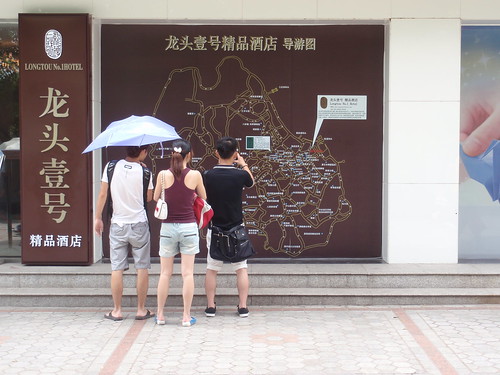
Off the coast of Xiamen, the city I stayed in, is a little island called Piano Island. It's not really called Piano Island, that's just what they tell foreigners. In China it isn't unusual to tell foreign tourists and natives completely different things.
The tourist story is that the island used to be the home of European consulates, and since so many Europeans were concentrated there, it had the highest rate of piano ownership in China. Supposedly, the sound of pianos was often heard floating from the island. You do hear classical music there today, but it's coming out of speakers they have hidden all over the place, and none of it is piano music.
Not that there were a lot of foreign tourists to tell this story to. This guy held his camera out to us:
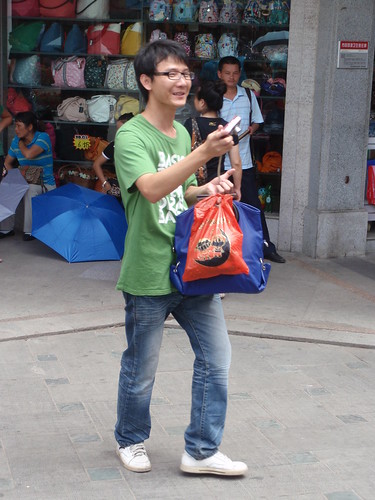
We thought he wanted help taking a picture of him and his girlfriend. It turns out she wanted to be in a picture with my coworker.
What the island is about for the Chinese is the person depicted by this giant statue:
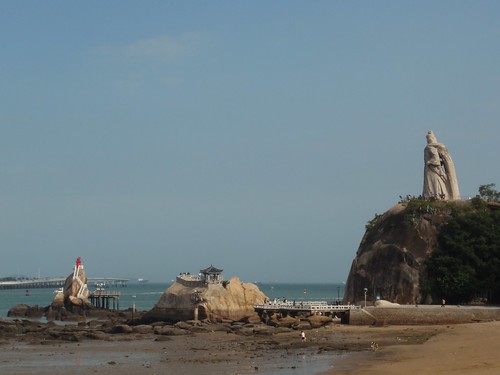
Apparently he defeated the Dutch on Taiwan, which was "always part of China" according to signs in the nearby museum. The island is a big anti-imperialist site for the Chinese and a very patriotic spot. Not the sort of thing they brag about to foreign tourists.
Everybody was taking pictures or having their pictures taken:
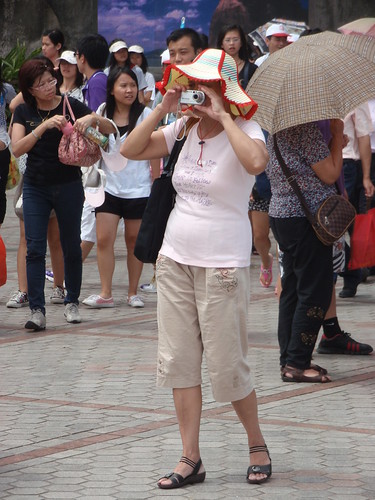
It was hard to travel in some places, because you were constantly letting pictures be taken.
Many of the old mansions now look like this:

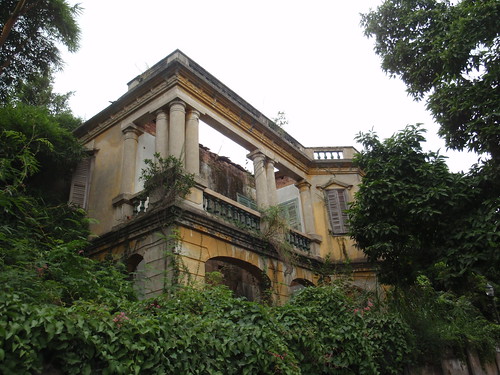
Mansions which aren't too dilapidated have been turned into restaurants or have stalls selling things in front of them:
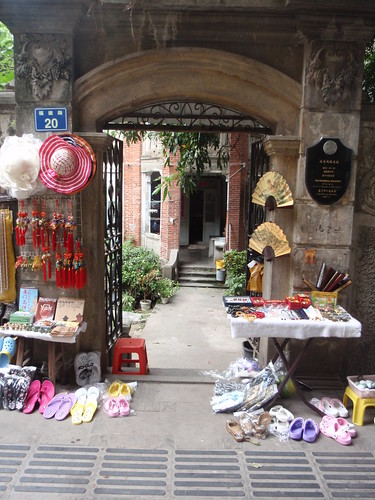
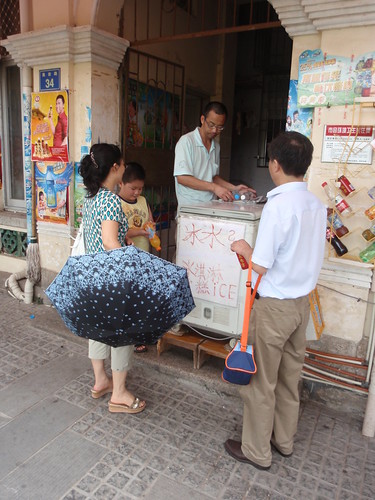
In the less affluent areas it seems like every house has a store on the ground floor, selling things to tourists. It's cheap crap you can buy somewhere else for less, and our Chinese friends were happy we didn't buy anything.
The island had Western restaurants like KFC, McDonald's, and Dairy Queen, but also many traditional ones, some which let you select your fish before it was cooked for you:

We also saw fish drying in many places:

No cars are allowed on the island. The architecture is traditional and there's just no room for them:
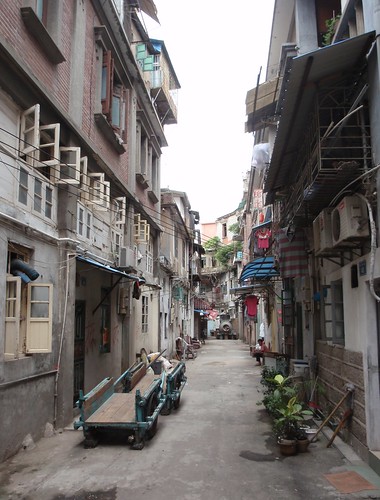
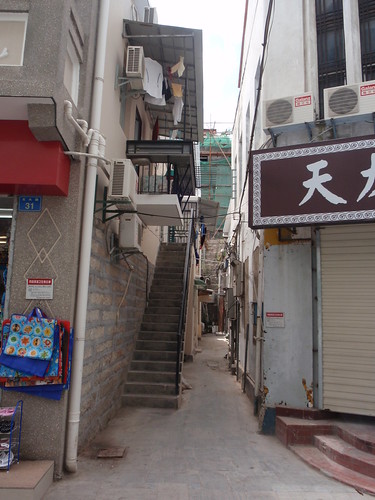
I loved looking in the side streets and catching glimpses of how people lived (I doubt these people play pianos):
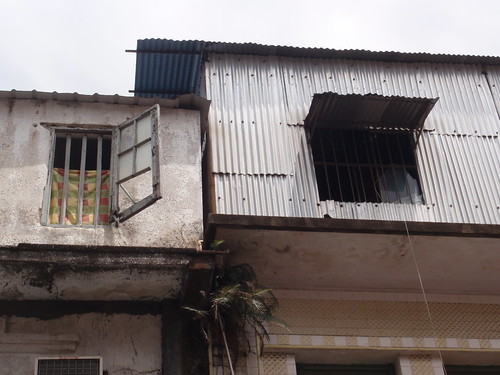
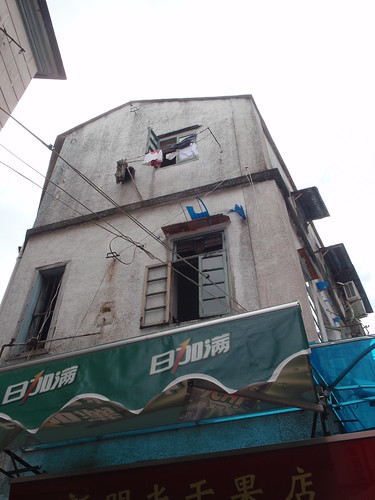
Don't be shocked by clotheslines:
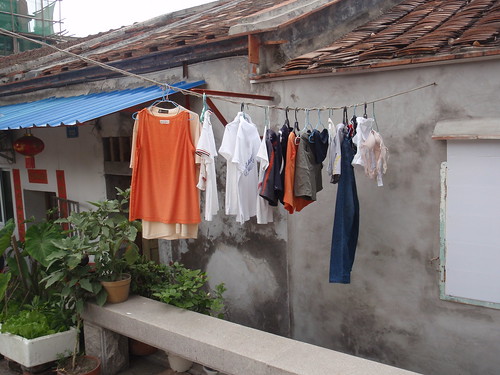
Even in the city it wasn't unusual to see clotheslines in almost every balcony.
I loved the street vendors:
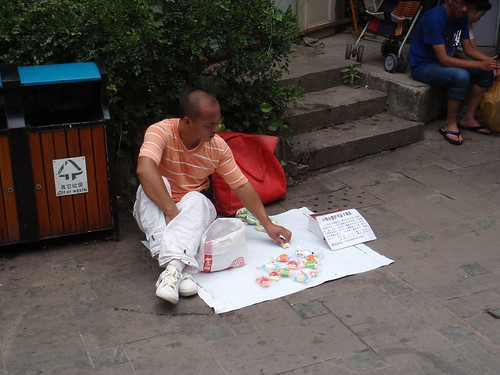
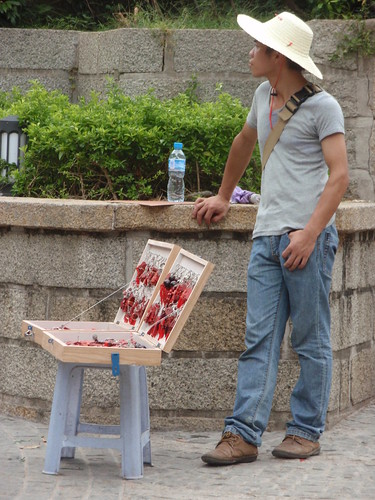

In China they are some of the greatest people to see; full of entrepreneurial spirit.
Several times a band of marchers in some sort of para-military garb came by:
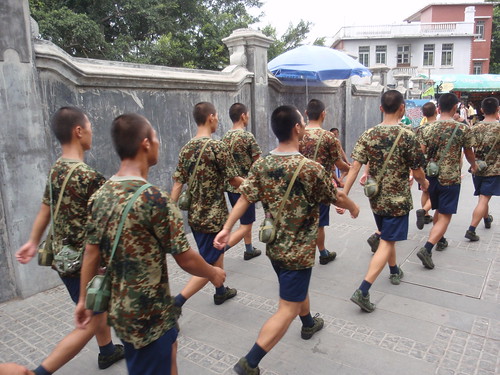
They were high school or college students performing their mandatory military training.
We saw Christian churches on the island:
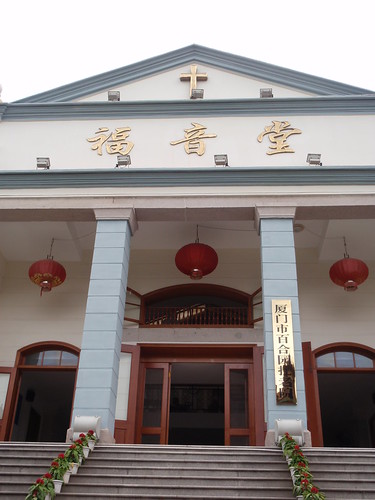
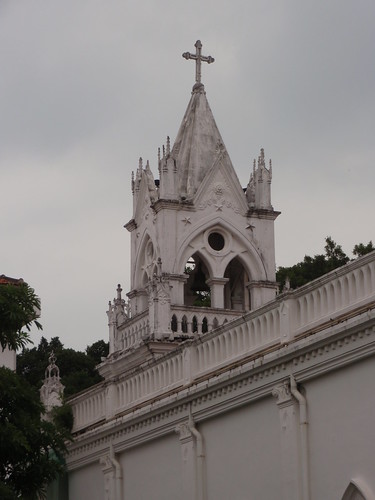
They seem well kept, but also well locked.
If you pay a fee they let you see some of the less commercial parts of the island which, because it's a small mountain, are also the higher parts of the island. Some of it is gardens meant for the public:
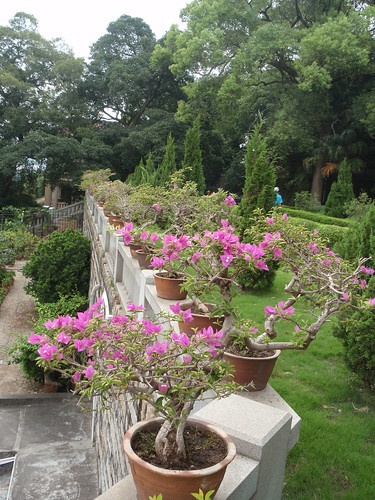
But other parts are clearly where people live:
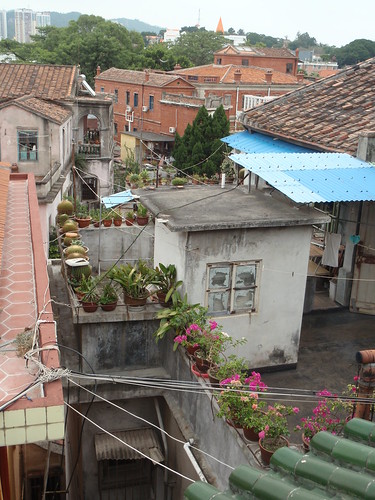
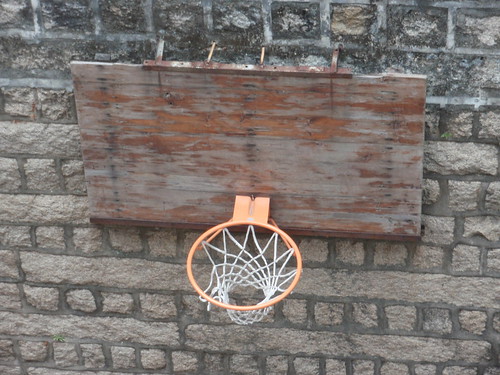
There was a Buddhist temple, actively being used:
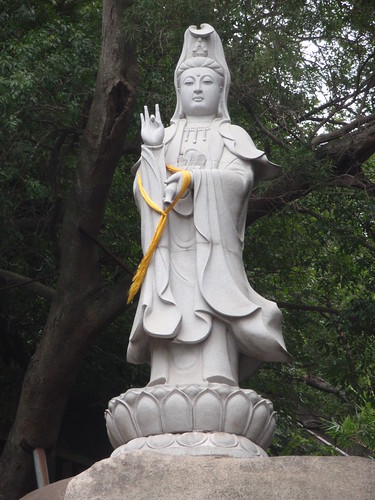
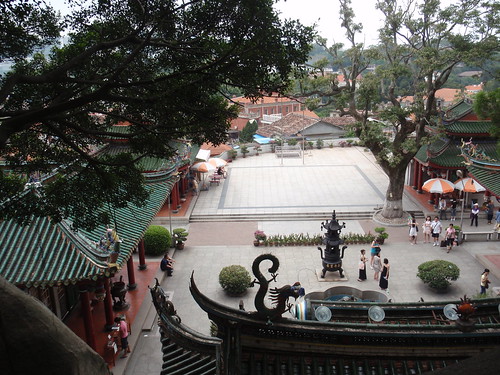
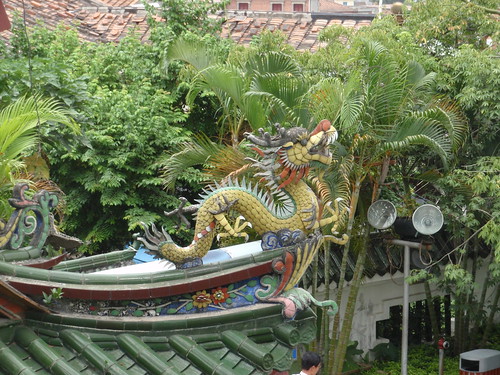
As you make your way further up the mountain, you can see carvings in the rocks, painted red:
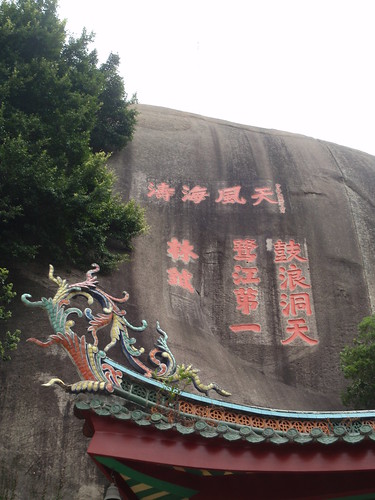
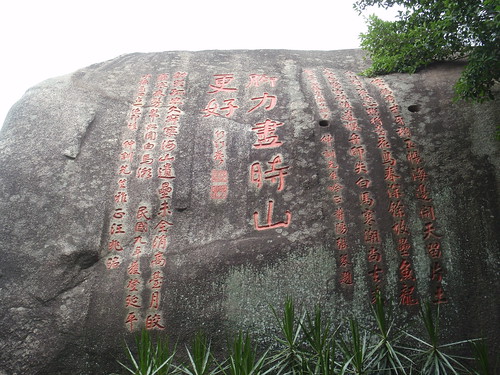
Some of it is very steep. It had a nice view though. The very top was a small fort used to defend against foreigners:
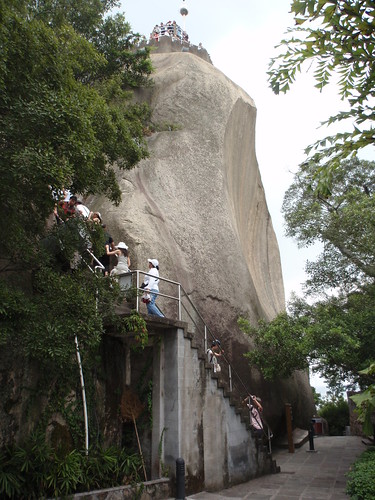
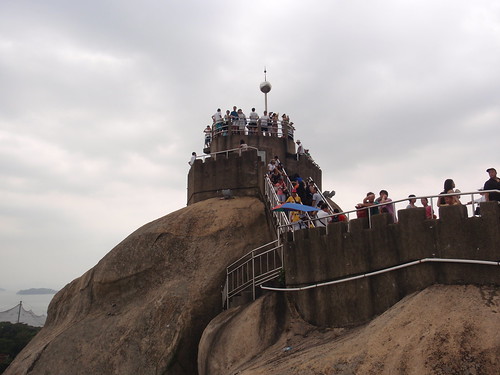
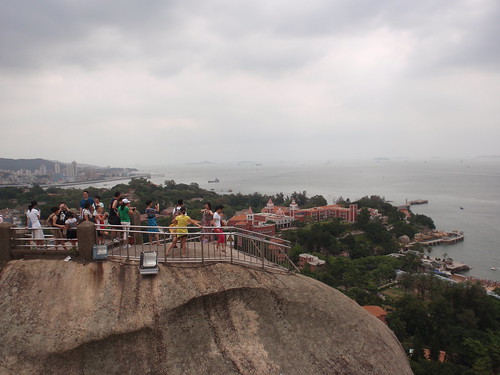
At this point a Chinese friend joined us and we went to the former German consulate to drink beer and discuss politics (the best part of the trip).
We toured a piano museum, where all the fabled pianos have ended up, and saw some of the coast:
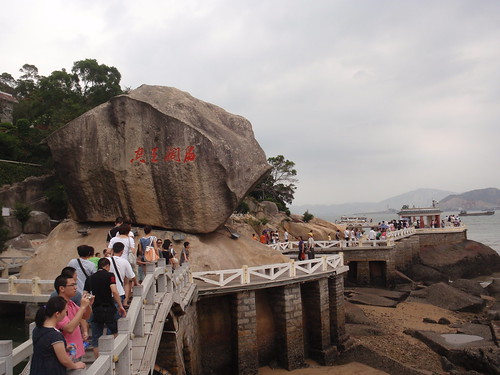

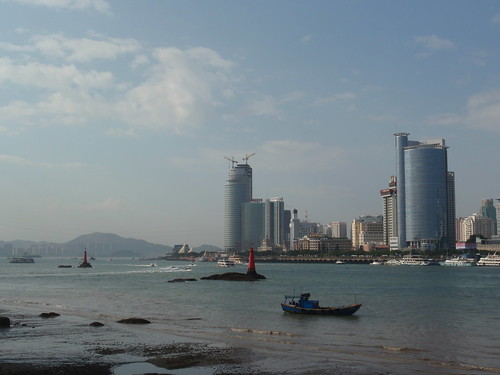
One thing I noticed was how Chinese people dealt with garbage. If there was no can around they would throw it on the ground, but they would all do it in the same spot:
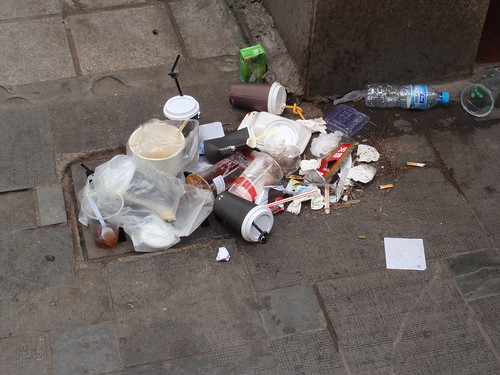
I realized this would make it easier to clean up. Even their garbage had this spontaneous order to it. That's not to say there was a lot of garbage on the island. People came up to us to take our empty drink bottles. I'm pretty sure they were paid to do so.
The island was also great for people watching:
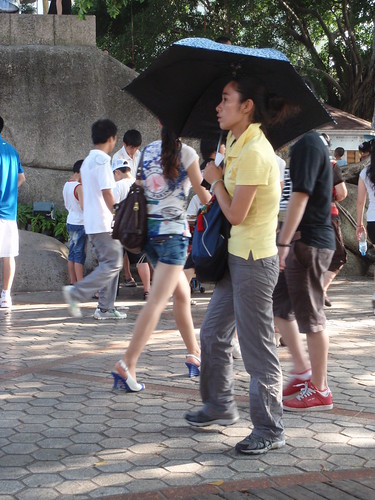
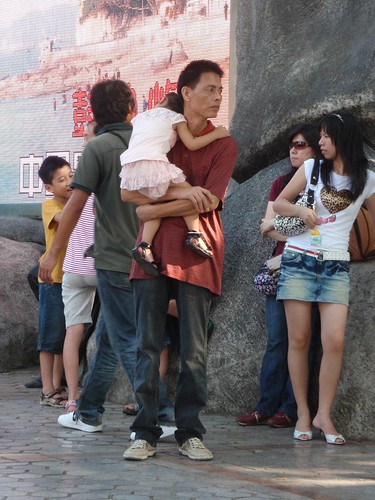
We saw a lot of men carrying children. And it wasn't raining. Men and women use umbrellas when it's sunny outside because they don't want to be tanned. Strangely, many of our Chinese friends wanted to take us to the beach, where I suppose we would have desperately tried to not let sunlight fall on us.
We got off the island the same way we got on it, by boat. You can either take a massively crowded ferry or a private boat:
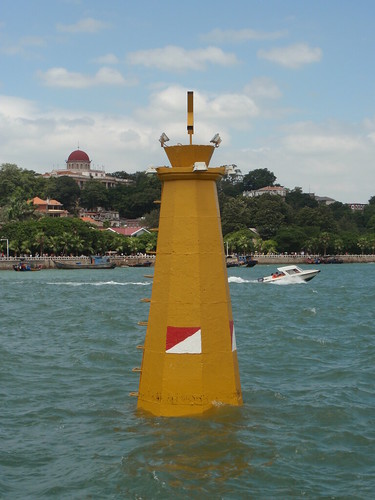
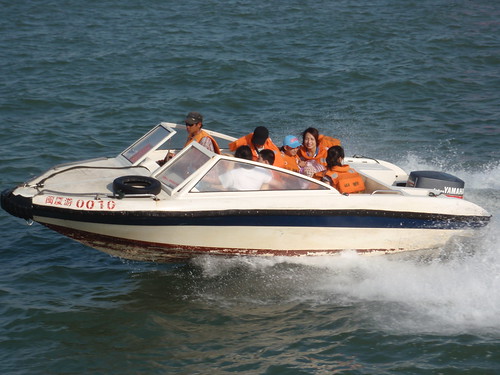
The private boat seems like it would be more fun, but it bounces!
2 comments:
What an amazing travelogue! The crumbling mansions seem like echoes of Joseph Conrad novels or John LeCarre's The Honourable Schoolboy. I'd, too, admire the people's sense on entrepreneurship but I was also struck at their Western appearance. They wouldn't be out of place in here on the streets of America.
Yes, everyone wants to be international. I saw a few obviously poor workers in clothes who look like peasants (rarely where I was), but everyone else was well dressed in modern looking clothing.
Post a Comment